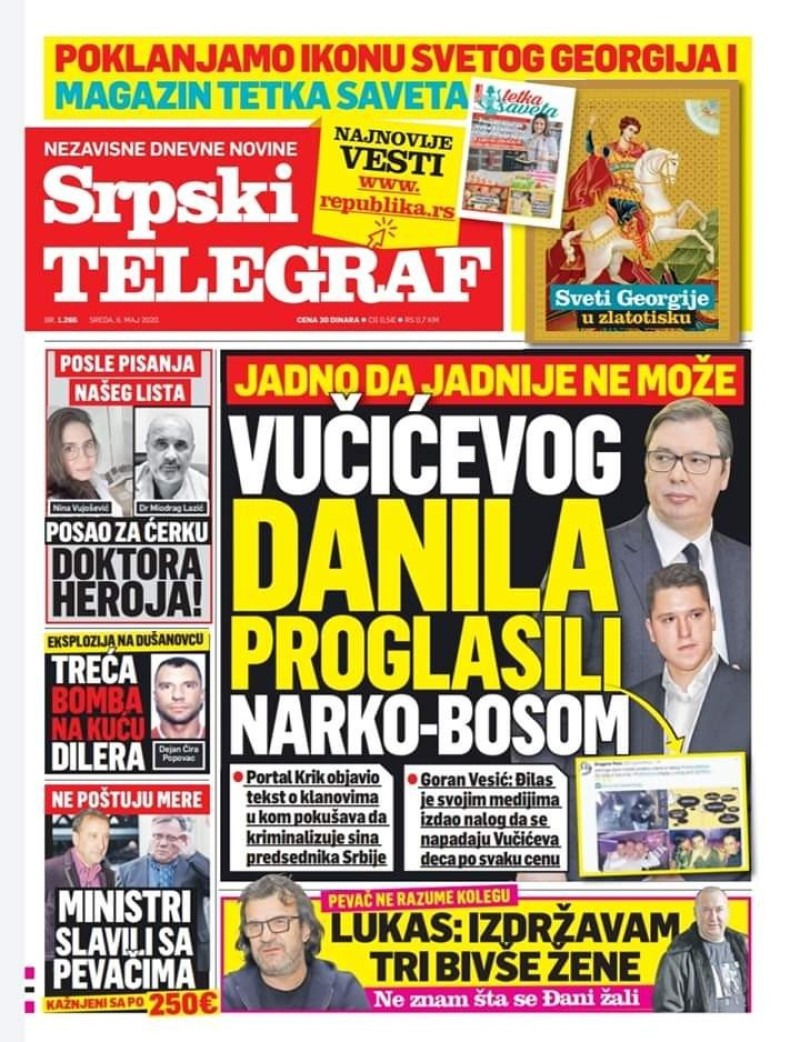Serbian political leaders took particular issue with the portion of the investigation that mentioned a connection between the son of Serbian President Aleksandar Vučić, Danilo Vučić, and a member of a football hooligan group that had ties to one of the crime groups that KRIK and OCCRP were reporting on.
Daily news outlets with allegiances to the government quickly attacked the investigation as a politically motivated hit piece that was published on behalf of the opposition.
The daily Kurir, often described as a tabloid publication with strong ties to Serbia’s ruling party described the investigation as “the most heinous attack aimed at criminalizing and satanising the President’s son.”
Nebojša Stefanović, Minister of the Interior, told local media that KRIK had placed “a target on the forehead of Danilo Vučić, directly endangering his life.”
As a result of this negative backlash, the CoE reports that KRIK journalists have received various threats in response.
The Independent Journalists' Association of Serbia (NUNS) condemned “the behavior of the highest state officials and calls on them to stop attacking and pressuring journalists and spinning and diverting public attention from important discoveries on some secondary topics.”
This is not the first time that KRIK journalists have been subjected to threats. In 2016, OCCRP reported that the outlet had to file a criminal complaint over threats sent to its editorial office and journalist Dragana Peco.
An anonymous twitter account, around the same time, said KRIK journalists "should be lined up and shot as foreign agents in Serbia."
“Journalists who criticize the government are typically tarred as traitors, social degenerates, and tools of the mafia or foreign intelligence agencies,” Freedom House reported in describing press freedom in Serbia.






